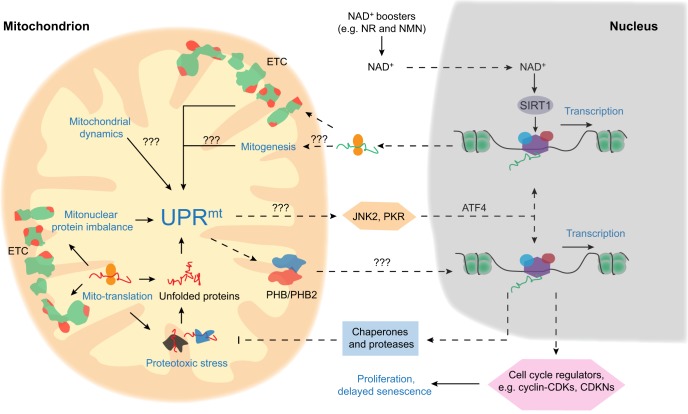Fig. 3.
UPRmt and stem cell regulation. Mitochondrial electron transport chain proteins are encoded by both the nuclear (green) and mitochondrial (red) genomes. Mitonuclear protein imbalance and proteotoxic stress, mitochondrial dynamics, and mitogenesis can all lead to mitochondrial stress, which activates the mitochondrial unfolded protein response (UPRmt). Retrograde UPRmt signaling, through prohibitin 1 and 2 (PHB and PHB2) and/or c-Jun N-terminal protein kinase (JNK2) and the protein kinase RNA-activated (PKR)-activating transcription factor 4 (ATF4) pathway (Quiros et al., 2017) can specifically regulate nuclear gene expression to generate more chaperones and proteases to alleviate proteotoxic stress. UPRmt-induced gene expression changes also lead to stem cell proliferation and a delayed senescence response. Pathways with the question marks are speculative and require further experimental confirmation. Solid and dashed arrows indicate direct and indirect pathway/links, respectively. NR, nicotinamide riboside; NMN, nicotinamide mononucleotide.

